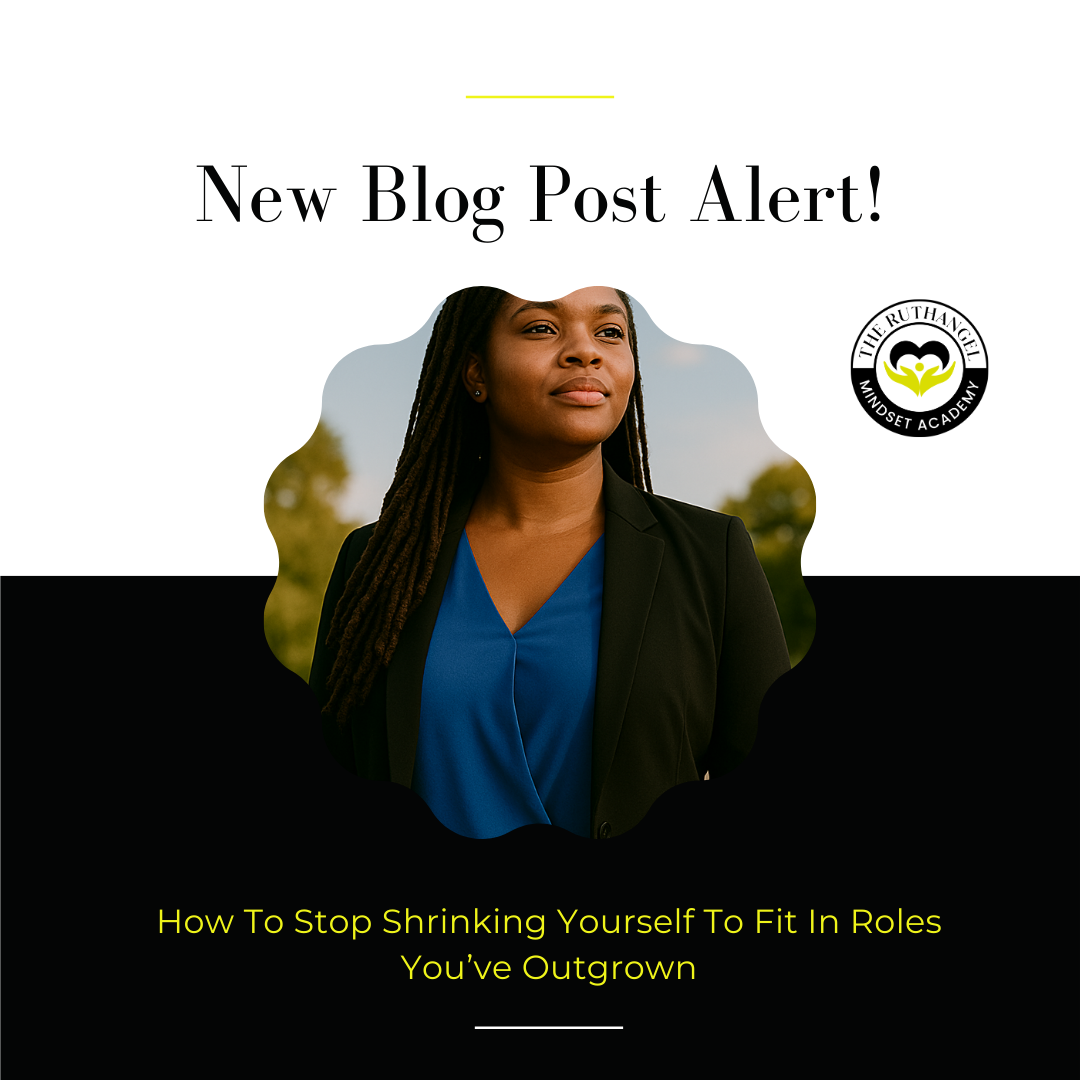Your Journey To Reclaim Yourself Starts Here!
Your Journey To Reclaim Yourself Starts Here!

How to Set Boundaries Without Explaining Yourself
Most of us were raised to believe that every “no” needs a reason.
We were taught that declining an invitation, turning down a request, or protecting our time should always be followed by a long explanation to soften the blow.
So we pile on justifications:
“I’m just overwhelmed right now.”
“It’s not that I don’t want to—I’m just so busy.”
“I wish I could, but…”
And here’s what happens: the more you explain, the more you invite negotiation. People start offering workarounds, persuading you to change your mind, or making you feel guilty.

You’re Not Selfish—You’re Reclaiming Authority Over Your Life
For years, you’ve been told that putting yourself first is selfish.
That a “good” woman sacrifices her time, her energy, her comfort to make life easier for everyone else. That your worth is measured by how much you give—and how little you need in return.
And for a while, you played by those rules. You said yes even when you were drained. You overextended yourself to meet everyone’s expectations. You kept the peace by swallowing your own needs.
But here’s the truth: reclaiming authority over your life isn’t selfish. It’s sacred.

Releasing Guilt for Wanting More Than Just “Okay”
There’s a kind of silence that settles in when life is technically fine—but your spirit isn’t.
On the surface, nothing is falling apart. The people you love are safe. Your routines are steady. You’ve built a version of stability you once prayed for. There are even moments that feel “normal.”
And yet, underneath it all, a quiet ache whispers: “Is this really it?”
Almost instantly, the guilt follows.
Because who are you to want more—when what you have should be enough?

Burn the Checklist: You Don’t Need to Earn Rest
Somewhere along the way, we were taught that rest is something to be earned—that it only comes after everything, and everyone, has been handled.
So we keep moving. We push through the fatigue. We whisper to ourselves, “Just get through this last thing.” But of course, there’s always one more thing.
And without even noticing, we create a life where rest becomes an idea we admire from a distance, not something we actually experience. It turns into a reward for someday, instead of a rhythm for today.

How to Create Mental Space When Your Life Feels Like a To-Do List
There’s a kind of mental fatigue that has nothing to do with sleep. It comes from the constant, invisible labor of managing everything—for everyone.
You wake up already behind. Before your feet even touch the floor, your mind is scanning: deadlines to meet, errands to run, texts to answer, meals to plan, emotions to manage—some your own, many that don’t even belong to you.
By the end of the day, you’ve barely paused. You’ve moved from one task to the next without a breath in between. The list never ends; it only refills itself. And even though you’ve been “productive,” you haven’t actually landed anywhere.

When the Strong Friend Breaks Down: What Comes Next?
When you’ve built a life around being the stable one, the idea of falling apart can feel threatening.
You wonder: Who will hold everything if I let go? Will they still trust me if I need help? Will I still be seen as strong if I fall apart—even just a little?
This is why so many strong women suffer in silence. They compartmentalize. They cry in the car, in the shower, in the smallest cracks of time between obligations. Then they wipe their face, reapply the mask, and step back into the role of the anchor.

Healing from Invisible Wounds: Emotional Recovery After Survival Mode
Some wounds don’t bleed. They don’t bruise. They don’t show up on scans.
They live deeper than that. They wire themselves into your nervous system. They show up in your routines. They shape how much you trust, how much you rest, how much you let yourself receive.
You can spend years in survival mode without realizing it. You keep moving. You get things done. You look reliable, strong, capable. And from the outside, it seems like you’re holding everything together.
But on the inside, you’re always bracing. Always scanning the room. Always preparing for the next thing to go wrong.

Letting Go of the Life You Thought You Would Have
There’s a quiet kind of grief that never makes it to the surface. It doesn’t come with a funeral. No one shows up with casseroles or flowers. No one checks in to ask how you’re holding up.
But it’s there—lingering beneath the polished surface of a life that, from the outside, seems perfectly fine.
It’s the grief of waking up one morning and realizing that the life you thought you’d be living—the one you planned for, hoped for, maybe even worked yourself to the bone for—somehow slipped away.

Reclaiming Your Name, Your Voice, Your Power
There comes a moment—quiet, often unspoken—when a woman learns to pull her voice back into herself. Not because she has nothing to say, but because somewhere along the way, silence started to feel safer.
It doesn’t always happen in a single dramatic crisis. Sometimes it begins with the smallest correction, the kind that lingers long after the words are spoken: “Don’t be so loud.” “Don’t make it a big deal.” “Don’t say that here.”
Other times, it happens slowly, so gradually you hardly notice it. You stop asking for what you need. You stop objecting when something feels wrong. You stop naming the truth that lives inside you. And it’s not because you’ve lost your voice—you haven’t. It’s because you’ve been taught, in a thousand quiet ways, that your truth is too much for the room you’re in.

How to Stop Shrinking Yourself to Fit in Roles You’ve Outgrown
There’s a kind of tired that sleep doesn’t fix.
Not the kind that comes from doing too much—but from slowly losing yourself along the way.
It shows up when you swallow your words instead of saying what you mean.
When you say yes just to avoid letting someone down.
When you feel that heavy silence after a choice that doesn’t belong to you.
Little by little, you start folding yourself smaller just to keep the life you’ve built running. Until one day, you look around and wonder if it’s even yours anymore.

“I Don’t Know Who I Am Anymore”—How to Reconnect with the Woman You Were Before Life Happened
It doesn’t happen in one dramatic collapse. It happens in moments so small you almost miss them.
Standing in the grocery store aisle, staring at rows of cereal and realizing you don’t even know which one you like anymore. Hearing your own laugh and realizing you haven’t heard it in months. Catching your reflection in a mirror and feeling like you’re looking at someone you used to know.
That’s when it hits—soft but heavy, right in the center of your chest:
“I don’t even know who I am anymore.”

You Don’t Need Permission to Begin Again…
There’s a quiet ache many women carry—the ache of waiting.
Waiting for life to calm down. Waiting for the kids to need you less. Waiting until the career is “stable enough,” the partner is ready enough, or the world finally slows down enough for you to finally breathe. Waiting until you feel worthy enough, confident enough, ready enough. Waiting for someone, somewhere, to look you in the eye and say, It’s your turn now.
It’s exhausting. Because while you wait, the world doesn’t pause. Days turn into weeks, weeks into months, and still that ache lingers—soft, persistent, a reminder that you’ve been holding yourself back for everyone else’s timeline.

